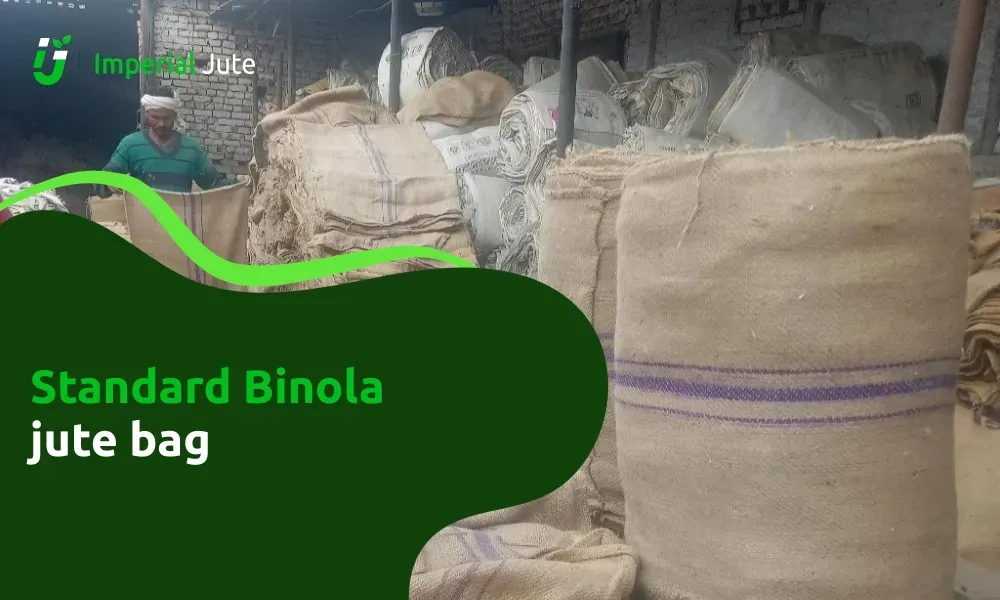Jute bags have rapidly become the go-to solution for businesses seeking sustainable, cost-effective packaging. With the global demand for eco-friendly products growing year over year, more resellers and retailers are shifting toward bulk jute bag purchases to meet both environmental expectations and commercial needs.
This comprehensive guide explores everything you need to know about sourcing wholesale jute bags—from pricing and supplier vetting to product types, customization, quality control, and global sourcing hubs such as Bangladesh, India, and China.
Why Buy Jute Bags in Bulk? Cost, Demand & Eco Appeal
Buying jute bags in bulk reduces per-unit costs while aligning your business with the global push toward sustainability. It’s both a strategic and ethical choice.
Cost Benefits of Buying Wholesale Jute Bags
Bulk purchasing unlocks significant savings on each unit, making it ideal for large retailers, exporters, and event organizers. When purchased in high volumes, jute bags can cost as low as $0.20–$0.60 per piece, depending on the size, GSM, and level of customization.
Shipping costs are also optimized in larger quantities since freight charges are distributed across a higher number of units. This makes international imports more financially viable.
For businesses looking to brand their own packaging or resell eco-friendly products, bulk ordering helps maintain higher profit margins.
Environmental Impact: Why Eco-Friendly Jute Bags Matter
Jute is a 100% biodegradable natural fiber, making it a cleaner alternative to plastic and synthetic materials. A hectare of jute plants can absorb up to 15 tons of carbon dioxide and release 11 tons of oxygen in just 100 days.
Switching to jute bags reduces landfill waste and microplastic pollution. For eco-conscious brands, this switch boosts brand image and meets sustainability compliance required by retailers and government regulations.
Jute also requires fewer pesticides and fertilizers compared to cotton, thereby reducing its environmental footprint throughout the supply chain.
Where to Buy Cheap Jute Bags Wholesale Without Compromising Quality
Reliable sourcing is key to balancing affordability with durability and branding flexibility. Many buyers make the mistake of chasing the lowest price without verifying quality or ethics.
What’s the Average Price of Cheap Jute Bags in Bulk?
Wholesale prices vary depending on the type, size, GSM (grams per square meter), and level of customization. On average:
- Mini jute pouches: $0.20–$0.35
- Small shopping bags: $0.35–$0.55
- Medium totes: $0.45–$0.75
- Large branded bags: $0.80–$1.20
Prices in Bangladesh and India tend to be lower compared to China or Europe, especially for standard models with minimal branding.
Custom orders with laminated linings, colored dyes, and screen-printed logos increase per-unit costs but add resale value.
Tips to Identify Trustworthy Low-Cost Suppliers
Always request product samples before committing to a bulk order. A reliable supplier will send swatches or prototype bags so you can test fabric strength, lamination, handle stitching, and print clarity.
Look for suppliers listed on trusted directories, such as Alibaba, Made-in-China, or TradeIndia, and those with verifiable export histories.
Customer reviews, ISO or SEDEX certifications, and factory audit reports are strong indicators of reliability.
Also, check their responsiveness and transparency during communication; it’s a real test of how they’ll handle bulk logistics.
Red Flags to Avoid When Sourcing Wholesale Jute Bags
Avoid sellers offering prices well below market averages without explanation. It often means lower GSM, weak stitching, or misleading specs.
Steer clear of suppliers who cannot provide product details, such as composition, lead time, or customization specifications, in writing.
If a factory refuses to share production photos or export history, that’s a warning sign. You risk delays, poor quality, or total loss.
Ensure the contract includes a clause for quality rechecks or third-party inspections prior to dispatch.
Top Categories of Wholesale Jute Bags (Tote, Shopping & More)
Jute bags come in various shapes, sizes, and functions, serving different market segments and customer needs. Here are the most popular categories.
Jute Tote Bags Wholesale for Retail & Promotion
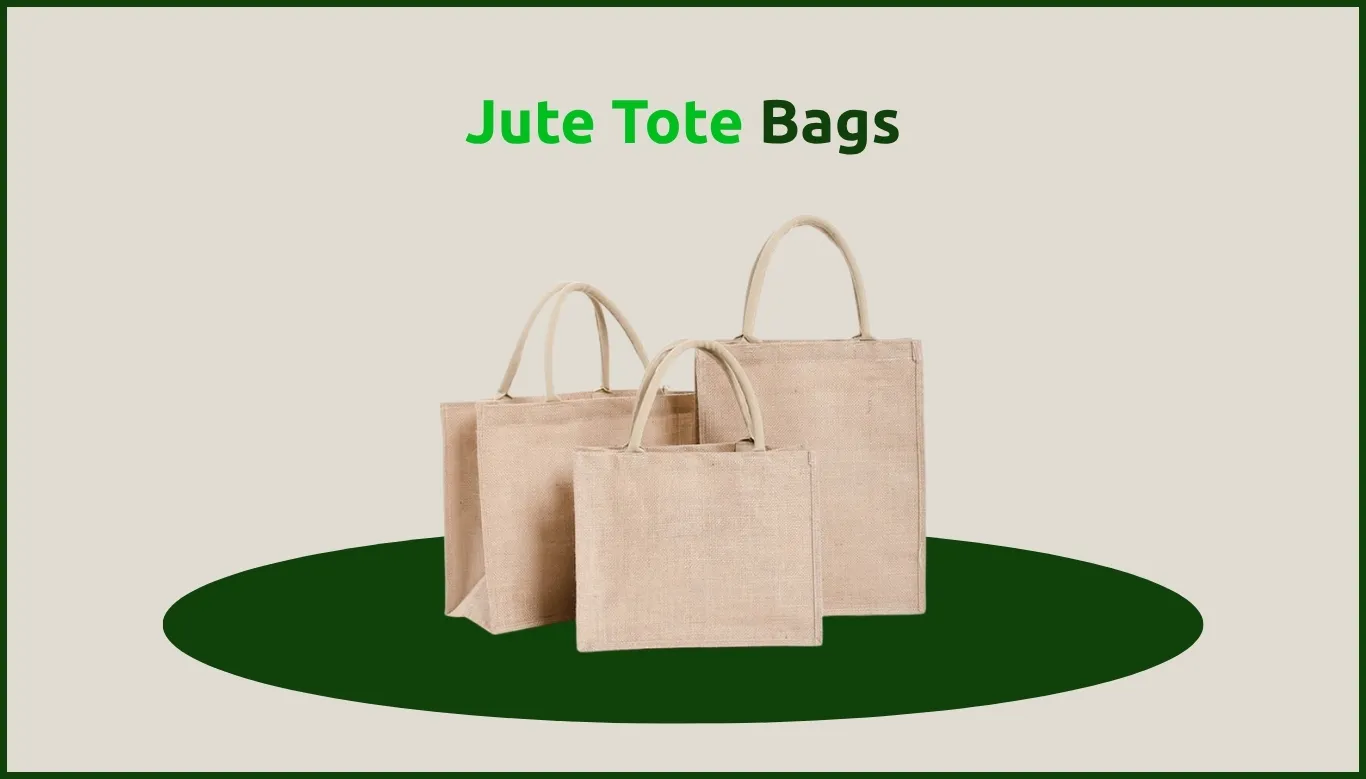
Tote bags are among the most demanded wholesale jute products. They’re used in retail outlets, exhibitions, and branded giveaways.
Large surface areas allow for bold logo printing, while the classic design suits markets for fashion, groceries, and everyday use. Many businesses customize these bags with brand colors and slogans to boost visibility.
Totes typically range from 14″ x 16″ to 18″ x 18″, with or without gussets and zippers.
Reusable Shopping Jute Bags for Supermarkets & Brands
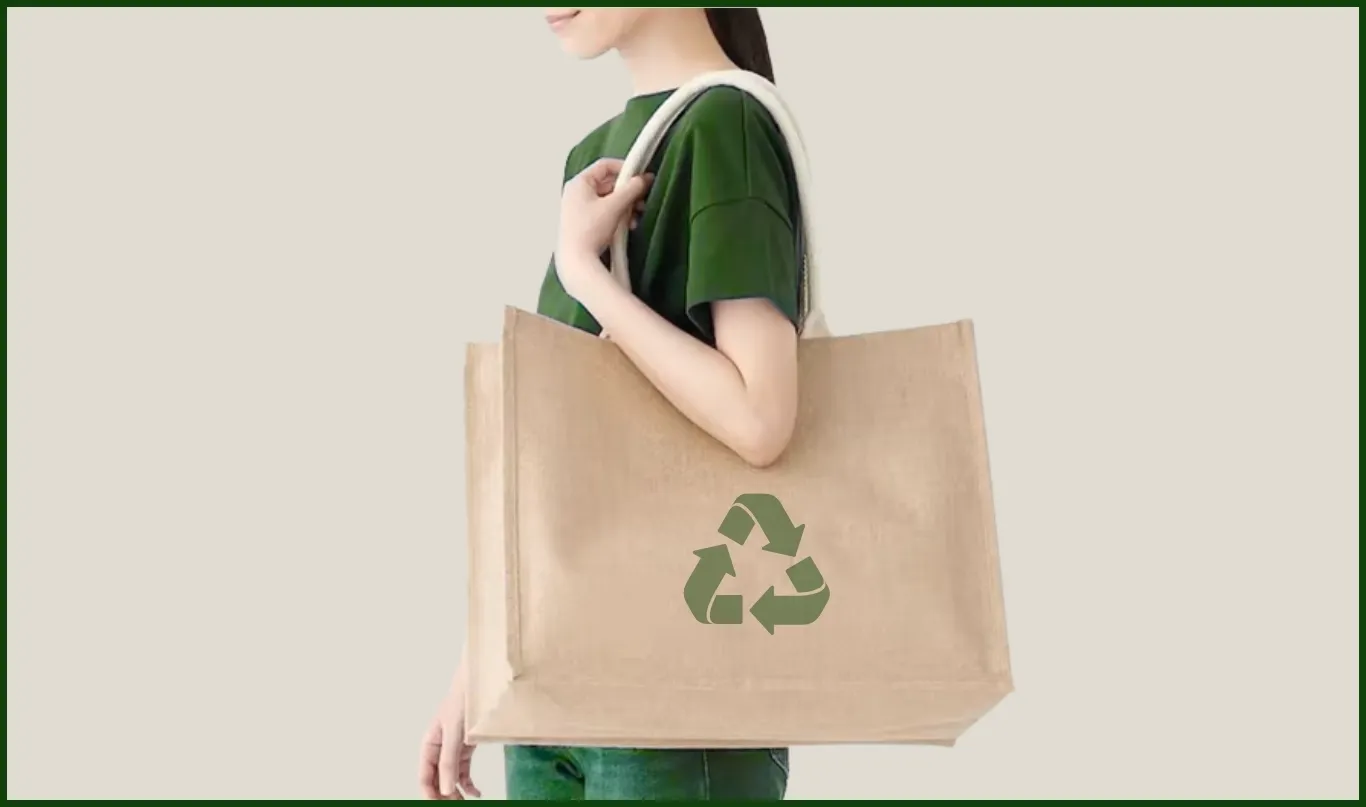
Supermarkets, organic stores, and department chains now offer jute bags as paid or free reusable alternatives to plastic bags.
These medium to large bags are often reinforced with lamination for waterproof use. They include long handles and side gussets for maximum capacity.
For B2B, they’re sold in packs of 100 to 10,000, depending on size and branding.
Custom Branded Options for Corporate Buyers
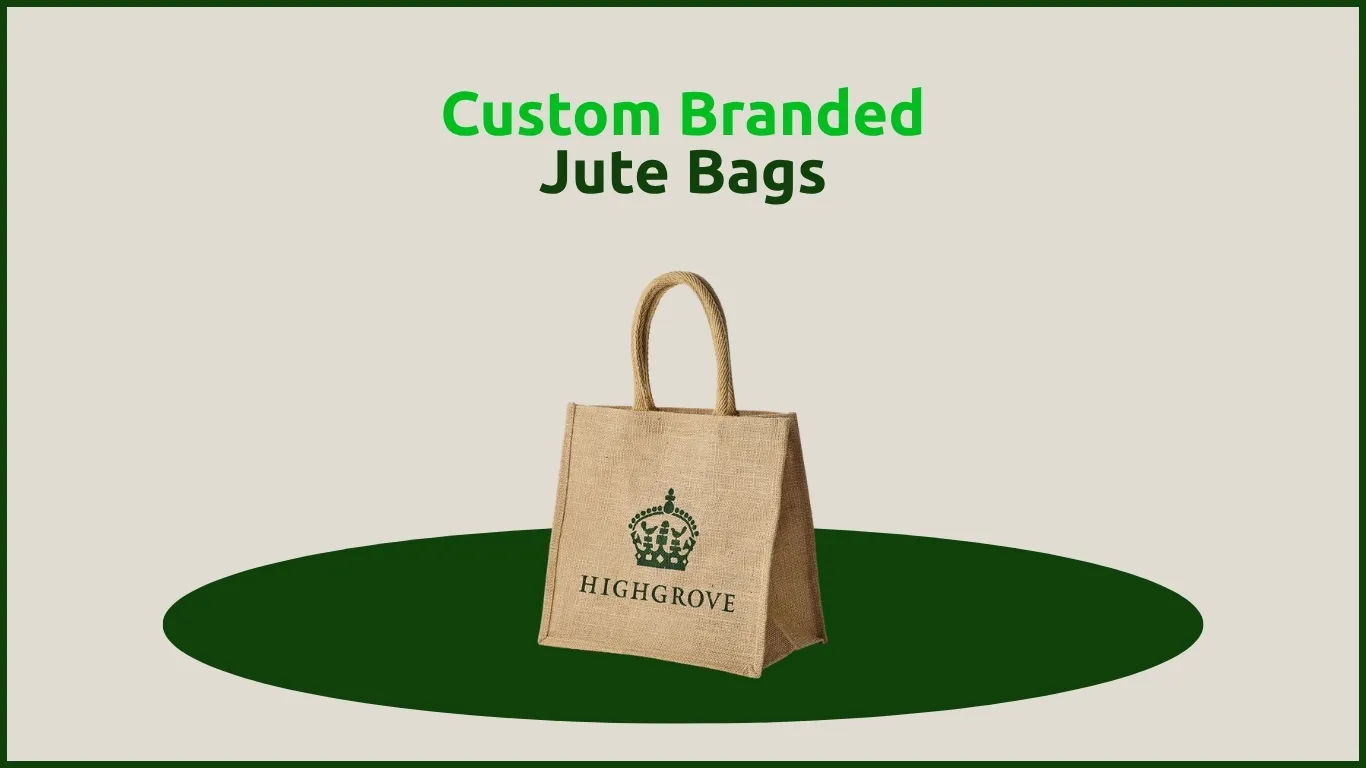
Many corporations now offer jute bags as corporate gifts during trade shows, conferences, and festive events.
They prefer full customization with specific dimensions, GSM, Pantone color matching, and multi-color screen or digital printing.
These orders typically include a detailed specification sheet, a branding manual, and proof approval before production commences.
Sourcing From a Small Jute Bag Wholesale Supplier or Factory
Working directly with small factories or niche suppliers gives buyers more flexibility, faster communication, and customization at lower costs. It’s a strategic approach for startups or brands with unique packaging needs.
Benefits of Working With Small Jute Bag Manufacturers
Small-scale suppliers often offer better customer service and are willing to produce lower MOQs compared to large export houses.
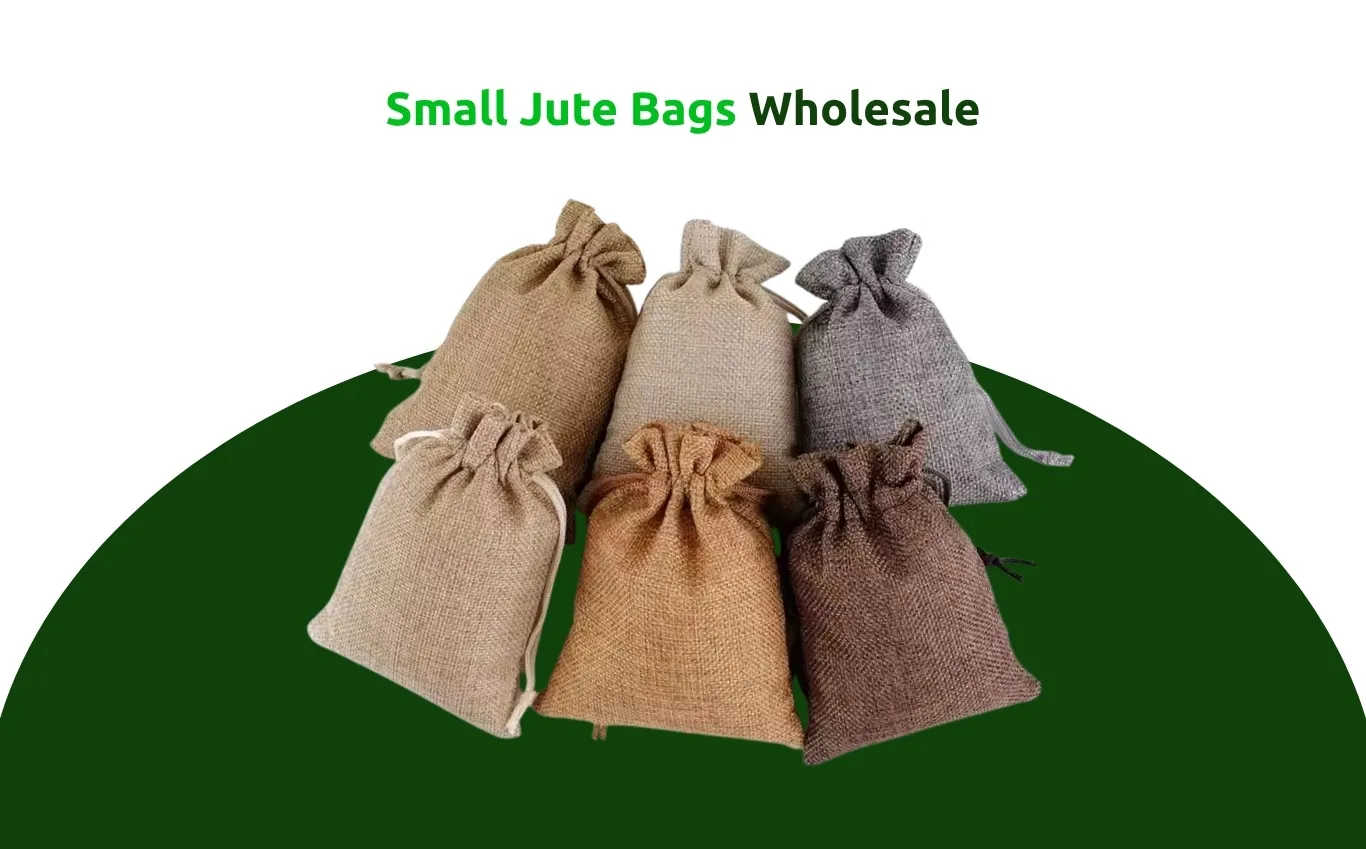
They’re more open to experimenting with unique designs, printing methods, or eco-focused materials like unbleached or dyed-free jute.
Buyers working on seasonal campaigns or pilot runs can benefit from reduced overheads, local material sourcing, and agile production schedules.
Local jute bag factories in Bangladesh, for instance, can adjust printing plates and color schemes quickly, something large exporters may decline due to scale issues.
How to Verify a Jute Bag Factory’s Credibility
Before choosing a small manufacturer, verify their business credentials. Ask for a trade license, client list, or third-party inspection reports.
A quick search on import-export databases like Volza, ImportGenius, or Panjiva can help you check whether the factory has actual shipment records.
You can also cross-reference their address and production unit photos with Google Maps to confirm physical existence.
Factory visits or video calls are common now. If visiting isn’t feasible, insist on a factory walkthrough via live video.
MOQ, Lead Times & Customization Options to Expect
MOQs (Minimum Order Quantities) from small suppliers typically start from 200 to 1,000 units, depending on bag size and customization.
Lead times range between 2–6 weeks. For custom dyeing, printed logos, or size modifications, an extra 5–10 days may be needed.
Always clarify timelines before placing orders, especially during peak export seasons (like pre-Christmas or Earth Day campaigns).
Key Features to Check Before Ordering Jute Bags in Bulk
Before committing to a bulk order, it’s crucial to evaluate the physical and functional quality of jute bags. This ensures product performance, customer satisfaction, and return on investment.
What GSM Is Best for Wholesale Jute Bags?
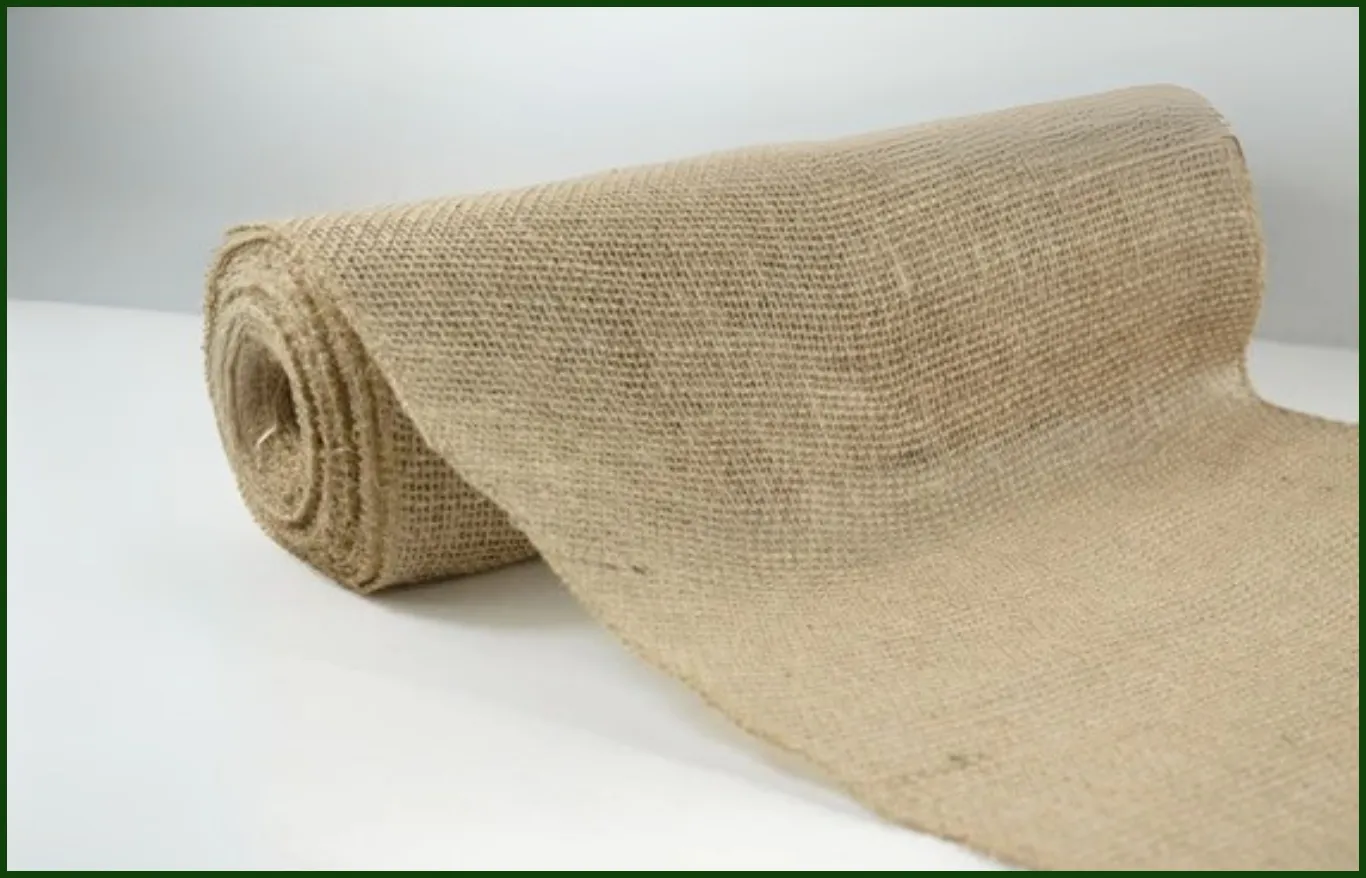
GSM (grams per square meter) refers to the fabric’s density and thickness. Common ranges for jute bags fall between 130 GSM and 300 GSM.
For promotional pouches or light items, 130–170 GSM is sufficient. For shopping or grocery use, 200–250 GSM is ideal to ensure durability and load-bearing capacity.
Heavier-duty bags used for industrial packaging may require up to 300 GSM with tight weave counts.
Always confirm the GSM before finalizing the order. Cheaper suppliers may offer bags below the claimed weight, compromising performance.
Laminated vs Non-Laminated Bags
Laminated jute bags have a thin plastic or PP coating inside, making them moisture-resistant and easy to clean. They’re ideal for groceries, wet goods, or corporate gifting.
Non-laminated bags, on the other hand, are breathable and fully compostable. These are best for dry packaging or retail use where eco-purity is a top priority.
Choose lamination only when function outweighs the sustainability concerns.
Handle Styles, Stitching Quality & Finish
Handle types include short jute cord handles, soft cotton rope, padded loop handles, or die-cut grips.
The strength of the handle stitching is critical for long-term use. Double-stitched cross patterns or reinforced rivets are signs of quality.
Also check edge finishing—whether they’re overlocked, hemmed, or left raw. Proper finishing prevents fraying and enhances the bag’s overall aesthetic.
Wholesale Jute Bag Sizes & Use Cases for Different Industries
Different industries require different jute bag sizes and features. Understanding these variations helps buyers choose the right product for their target use case.
Popular Bag Sizes and Their Applications
- 4×6 to 8×10 inches: Pouches for jewelry, wedding gifts, or cosmetic packaging
- 10×12 to 14×16 inches: Standard retail shopping or trade fair giveaway bags
- 16×18 to 18×20 inches: Grocery bags, department store bags, or beach totes
- 20+ inches wide: Bulk packaging for agricultural or industrial purposes
Retailers often choose size based on weight capacity, customer preference, and brand image.
Jute Bags for Packaging, Gifting, Grocery & More
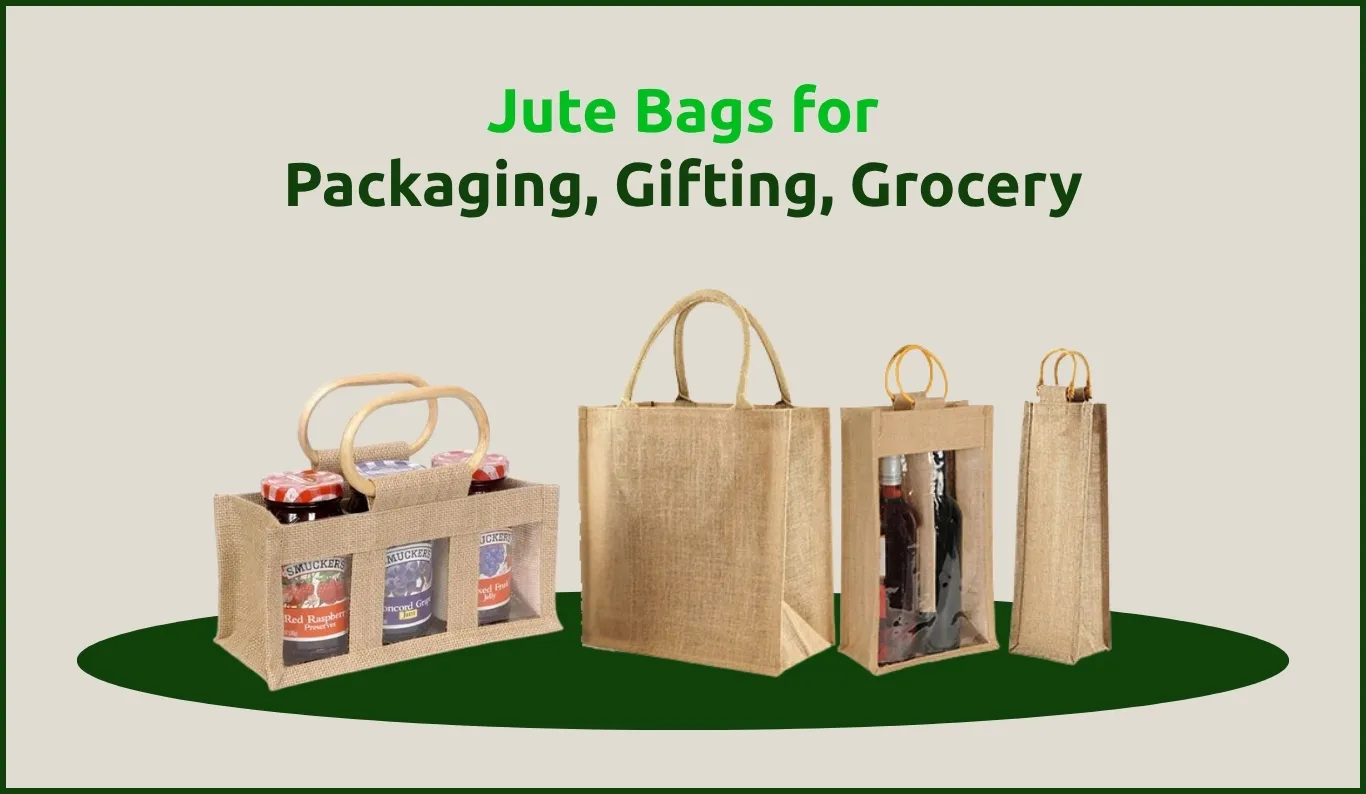
In the packaging industry, jute is valued for its rustic appearance and natural protection. Many luxury brands now use jute for perfume boxes or skincare kits.
In the grocery sector, jute bags with gussets and laminated lining are used to replace plastic carry bags in supermarkets.
Gift shops and craft sellers use mini jute bags with ribbons, buttons, or screen-printed designs to offer customers eco-conscious wrapping alternatives.
Hotels, cafes, and organic stores have adopted branded jute bags as part of their loyalty programs or gift bundles.
Custom Orders for Niche Markets (e.g., Coffee, Spices, Organic Shops)
Some suppliers offer custom bags for niche industries like coffee, tea, or spice exporters. These bags often include food-safe lining, drawstring closures, or stitched labels.
Organic shops and farm stores also order custom sizes with biodegradable ink prints, no-laminate fabric, and recycled cotton handles to maintain brand consistency.
Such bags serve both marketing and storage functions, building customer loyalty while keeping the product eco-packaged.
How to Choose the Right Wholesale Jute Bag Supplier or Exporter
Choosing a supplier isn’t just about price—it’s about reliability, compliance, and long-term scalability. Selecting the wrong partner can lead to delayed shipments, damaged stock, and brand damage.
Key Questions to Ask Before Partnering With a Supplier
- What certifications do you have (ISO, SEDEX, BSCI)?
- Can you provide sample photos, videos, or swatches?
- What’s your MOQ and standard lead time?
- Do you offer custom branding and packing support?
- How do you handle quality control before dispatch?
These questions help assess professionalism and production capacity.
Local vs Overseas Suppliers: What’s Better for You?
Local suppliers offer faster delivery, easier communication, and lower freight costs for domestic use. But they often lack variety and may charge higher unit prices.
Overseas suppliers, especially in Bangladesh or India, offer broader catalogues, lower pricing, and full customization—but require careful vetting and longer lead times.
Consider your use case: for event deadlines or urgent promotions, go local. For long-term stocking and branding, overseas is often better.
Bulk Ordering Process: From Quote to Delivery
Understanding how the bulk order process works helps you avoid delays, miscommunication, and quality issues. From inquiry to delivery, each step should be transparent and well-documented.
Getting a Quote & Finalizing Specifications
Start by sending a detailed inquiry with quantity, size, GSM, lamination preference, handle type, and branding details. The more precise your request, the more accurate the quote.
Suppliers usually respond within 24–72 hours with a quotation that includes unit price, shipping cost (if applicable), MOQ, and lead time.
Ensure you review and approve the final design mockups, print colors, bag dimensions, and handle specifications before production. This avoids any costly mistakes.
In many cases, you’ll also need to approve a physical or digital sample before the full order proceeds.
Payment Terms, Lead Times & Delivery Expectations
Most exporters work with 50% advance and 50% before shipment. Some may accept 100% advance or work on Letter of Credit (LC) terms for large orders.
Production timelines vary based on order volume and customization, but standard lead time ranges from 15–30 days.
Shipping adds another 7–25 days depending on your location. For example, sea freight from Bangladesh to the UAE takes about 10–15 days, while to the US can take 20–30.
Express air freight is faster but significantly more expensive. It’s ideal for urgent or small orders.
Sample Orders & Quality Checks Before Bulk Dispatch
Always ask for a pre-production sample or a small trial batch. This helps verify print quality, stitching, material feel, and packaging.
Some buyers also hire third-party inspection services like SGS or Bureau Veritas to audit the final shipment before dispatch. This adds an extra layer of protection.
Quality issues discovered after shipping are much harder and costlier to fix, especially in international trade.
Best Countries & Markets to Source Wholesale Jute Bags
While Bangladesh leads the global jute bag export market, other countries also offer quality options depending on your priorities, like cost, customization, or logistics.
Bangladesh: The Global Hub for Jute Bag Manufacturing
Bangladesh is the largest exporter of jute fiber and jute goods, accounting for more than 80% of the global supply.
Factories here are vertically integrated, meaning they handle spinning, weaving, cutting, printing, and packaging under one roof. This results in better quality control and pricing.
Buyers choose Bangladesh for its affordable labor, large production capacity, and eco-compliance. Many certified factories serve Europe, the US, and the Middle East.
India: Diverse Designs with Competitive Pricing
India is known for producing jute bags with more intricate designs, color variations, and decorative elements like embroidery or patchwork.
Pricing is slightly higher than in Bangladesh but still competitive. Many Indian exporters specialize in retail and gifting categories.
Cities like Kolkata, Chennai, and Delhi are popular sourcing hubs for jute products. Indian suppliers are also known for their packaging presentation.
China: Blended Jute Options & Global Shipping Infrastructure
Chinese suppliers often offer blended jute products, mixes of jute and cotton, jute and canvas, or synthetic-laminated versions. These are widely used for promotional campaigns and custom gift sets.
China’s strong logistics and shipping infrastructure make it easier to get quick deliveries, especially for buyers in the US or EU.
However, pure eco-jute options may be less readily available or priced higher than in South Asia.
Frequently Asked Questions (FAQ)
Can I customize jute bags with my logo in bulk orders?
Yes. Most suppliers offer screen printing, digital printing, or embroidery. You’ll need to share your logo in vector format (like AI or PDF) and confirm the print area, colors, and positioning.
What’s the minimum order quantity (MOQ) for wholesale jute bags?
MOQ typically starts from 200 to 1,000 units, depending on bag type and customization. Smaller quantities may be accepted for plain bags or stock items.
Are jute bags suitable for food packaging?
Yes, especially if they’re laminated and food-safe certified. They’re used to package dry goods like spices, rice, flour, or coffee in both pouch and sack formats.
How long do jute bags last in commercial use?
Jute bags can last anywhere from 6 months to 2 years, depending on usage, stitching quality, and GSM. Laminated versions tend to last longer due to added durability.
Are cheap jute bags biodegradable and safe for the environment?
Yes, pure jute bags without plastic lamination are fully biodegradable and compostable. However, if they contain synthetic lining or ink, the environmental benefit may be reduced.
Conclusion
With sustainability regulations tightening and consumer expectations shifting toward greener choices, jute bags are no longer optional, they’re essential.
Bulk buying helps you stay ahead of environmental laws, reduce unit costs, and strengthen your brand’s ethical identity.
Whether you’re a wholesaler, startup, supermarket, or exporter, sourcing high-quality jute bags at scale opens up new growth opportunities while contributing to a cleaner planet.
Choose your supplier wisely, inspect quality thoroughly, and embrace eco-packaging as more than a trend, it’s your brand’s next competitive advantage.
